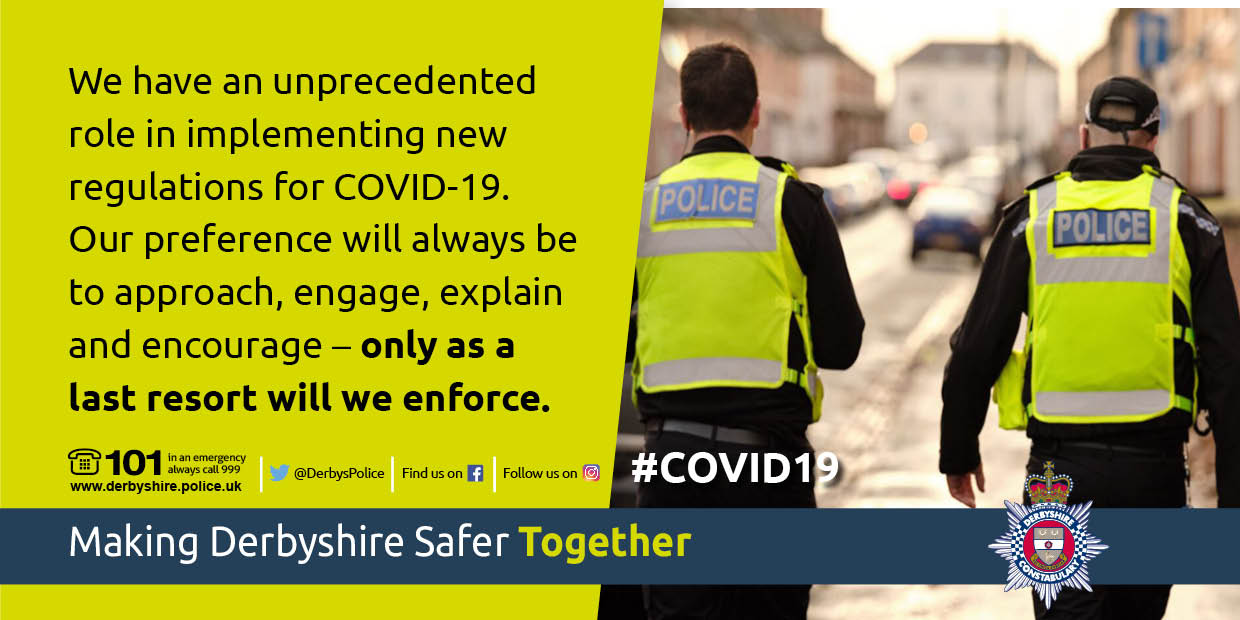Desperate times call for desperate measures; that much is clear. The most invasive set of regulations ever seen in peacetime are currently being enforced in the UK, effectively putting the country under house arrest with limited ‘necessary’ excuses to leave home. The highly contagious coronavirus has warranted such drastic action, having claimed thousands of lives, with the potential to claim many more.
Public opinion is generally in agreement with the new laws, acknowledging the importance of mitigating the impact of the virus. But, for such radical measures to work, people must have faith in them and how they are being applied. Just as it only takes one ignorant person to spread the disease, it only takes one tyrannical police officer to mar the credibility of the provisions.
The application of the new laws have varied by degree, and some police forces have come under fire for stretching the limits of their powers, particularly by harnessing their social media influence to shame people.
For instance, Derbyshire police used drones to expose people who had continued to visit beauty spots in the peak district. They published this footage on Twitter, claiming it was helping to keep people safe. However, many found this policing excessive, claiming that a surveillance state isn’t going to help keep people safe.
Prominent legal scholar Lord Sumption argued that such behaviours “are not contrary to the regulations simply because ministers have said that they would prefer us not to”. His comment references the fact that the police were acting upon government guidance rather than any legal authority. Yet the number of people visiting the Peak District did go down, so the sentiment behind their actions was beneficial.
It is clear that police are at the heart of public life, balanced between the competing interests of protecting the public and upholding the law. In times of emergency, there is little time for police forces to scrutinise the parameters of their powers before putting them into action.
I investigated their powers further by messaging my local Councillor. In our locality, The New Forest, all forest car parks have been shut with road blocks. This has prevented people going on dog walks in the forest, which had the potential to get over-crowded on nice days and pose a risk to social distancing. Anyone who continues to park here is shamed on social media.

However, nowhere in the regulations does it say you can’t travel to get exercise.Though it is clear that the measures are in place for good reason, some have raised concerns that it feels like we are living in a tyrannical state, where policemen dispense dubious powers which can’t be contested because of their good intentions.
The Councillor told me that everyone’s priority must be saving lives, not legal interpretations. Emergency powers are there for a reason: to deal with emergencies. Yet, the legality of police action should not be beyond question, simply in order to maintain the confidence of the people, if nothing else.
Warrington Police were another force to take drastic and immediate action, summoning people to court for going ‘out for a drive due to boredom’, and for ‘multiple people from the same household going to the shops for nonessential items’. There is no legal authority for this. No carefully defined list of non essential items is available, and it’s not obvious how harm can be caused by going for a drive alone out of boredom. Still, it is true that universalising any of these scenarios would see shops packed and the lockdown lose its severity.
It is such a difficult balance for both police and citizens. With social media empowering police with a wide attentive audience of housebound residents, shaming citizens might be as damaging as a legal trial. It is clear that emergency measures are in place for a reason; no one can argue that minimising transmission isn’t a paramount concern. But somewhere amongst the rhetoric of “Stay Home Save Lives”, behind the veil of legality that many attach to government advice, and beneath the wrath of fear and concern as the virus spreads further, the lines around what the law really is have been blurred.

